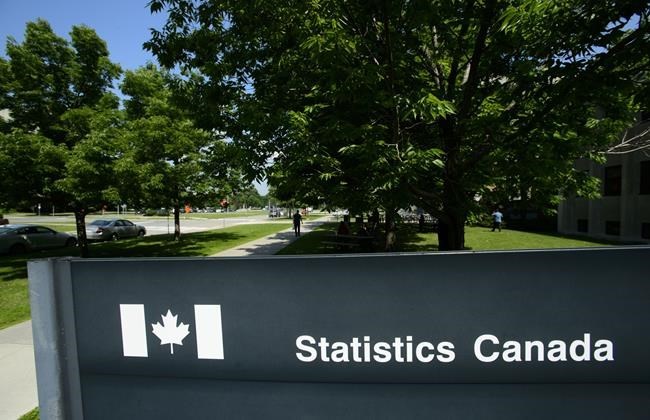OTTAWA — The annual pace of inflation rose in April for the first time since it peaked in June last year, a move some economists say will test the Bank of Canada's decision to pause hiking interest rates if the economy does not cool as expected later this year.
Statistics Canada said Tuesday its consumer price index was up 4.4 per cent compared with a year ago, up from a year-over-year increase of 4.3 per cent in March.
It was the first tick higher in the annual rate since it peaked at 8.1 per cent in June 2022.
Tuan Nguyen, an economist with accounting and consultancy RSM Canada, said the April inflation reading came in much hotter than expected, putting more pressure on the Bank of Canada to reassess its rate pause strategy.
"Our base case remains that the Bank of Canada will continue to pause at the June meeting, but of course the probability of a rate hike is increasing," he said.
Nguyen said he expects a change in the Bank of Canada's tone in its rate decision next month and added that he thinks rate cuts later this year are off the table, based on the latest inflation report.
The Bank of Canada has forecast that the annual inflation rate will come down to about three per cent in the coming months, but suggested that a return to its target of two per cent will take longer.
Bank of Canada governor Tiff Macklem has said that if the central bank starts to see signs that inflation is likely to get stuck materially above its two per cent target it is prepared to raise rates further.
The central bank’s key interest rate has been on hold at 4.5 per cent, but its governing council considered raising rates last month before deciding to remain on pause.
The bank's next interest rate decision is set for June 7, ahead of the May jobs report from Statistics Canada on June 9.
Leslie Preston, managing director and senior economist at TD Bank, wrote in a report that cooler inflation for demand-sensitive services inflation, or "supercore," was the most encouraging development of the inflation report, even though it was somewhat offset by hotter inflation for goods.
Preston wrote that this reinforces the challenge Macklem has talked about in bringing inflation all the way back to the central bank's two per cent target.
"This suggests that the BoC needs to remain vigilant to inflation pressures, and may need to hike again if momentum in the domestic economy does not cool as expected," Preston wrote.
Statistics Canada said the increase in inflation for April was driven by higher mortgage interest costs which were up 28.5 per cent compared with a year ago as new homebuyers and those renewing mortgages faced higher interest rates. A 6.1 per cent increase in rent prices also helped push the overall rate up.
Grocery prices, which have been closely watched, were up 9.1 per cent compared with a year ago, but that increase was smaller than the 9.7 per cent year-over-year jump in March.
Prices for fresh vegetables in April were up 8.8 per cent on a year-over-year basis compared with a 10.8 per cent gain in March, while coffee and tea prices increased 6.4 per cent year-over-year compared with 11.1 per cent in March.
Gasoline prices in April were down 7.7 per cent compared with a year earlier when prices were higher due in part to Russia’s of Ukraine. However, gasoline prices in April rose 6.3 per cent compared with March, the largest monthly increase since October 2022.
Despite the increase in the overall annual rate of inflation, the average of the three core measures of inflation that are tracked by the Bank of Canada came in at 4.70 per cent for April, down from 4.97 per cent in March.
This report by The Canadian Press was first published May 16, 2023.
Craig Wong, The Canadian Press



